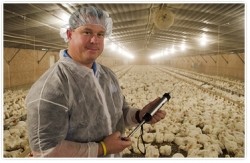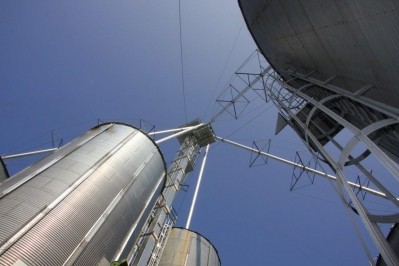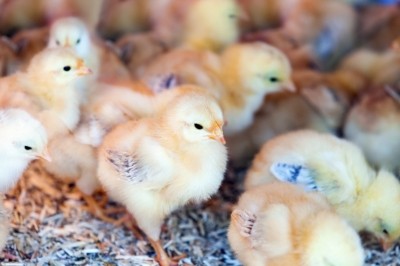US chicken processor removes antibiotics from hatcheries
We have seen a five-fold increase in our use of pre-and probiotics in feed: Perdue Foods

Eliminating use in the hatchery has taken five years to fully implement, said the chicken giant, which says it has now reached the point where 95% of its chickens never receive any human antibiotics.
FeedNavigator.com caught up with Dr Bruce Stewart-Brown, senior vice president of food safety, quality and live operations for Perdue Foods, to hear about the feed inputs and overall approach the processor is using to support its antibiotic reduction strategy.
He said that a migration away from the conventional use of antibiotics in agriculture means more than taking human antibiotics out of a processor's feeding regime: “You have to develop programs, from breeder operations through the hatchery and feed mill and onto the farm, that are sustainable without that use.”
New feed inputs
And several management changes have contributed to Perdue’s success, continued Brown, including making the feed as digestible as possible by moving to an all-vegetable diet and removing animal products.
“We are also supporting the chicken's digestive system by adding pre- and probiotics to feed. We have seen a five-fold increase in our use of these products in the last five years.
In addition, we are doing more and more successful vaccinations, both in breeder hens and in the chicks themselves, and are working with our contract growers to provide optimal growing conditions,” added the Perdue executive.
Journey to antibiotic reduction
Perdue Foods started the move away from conventional antibiotic use in 2002, in response to growing consumer concern and its own questions about the practice. “We recognized that the public was concerned about the potential impact of the use of these drugs on their ability to effectively treat humans,” said Brown.
The processor said it focused first on removing growth-promoting antibiotics. In 2005, it phased out the use of specific medically important antibiotics in its feeds, including floroquinolones, four years before the FDA banned their use in animal agriculture. By 2007, the company said it had successfully removed all human antibiotics from its feed.
The final step in its drive toward responsible antibiotics use, said the group, was eliminating their use in the hatchery, a process that began in 2009 and culminated this summer.
Perdue said it now exceeds the US Federal Drug Administration’s (FDA) voluntary guidelines for antibiotic use in food animals, as well as the standards of the USDA organic certification program.
Cleanliness is paramount
In terms of changes made to the hatcheries to support the company's reduction in antibiotic dependency, Brown said Perdue learned that it “starts before the hatchery with attention to detail like the cleanliness of eggs coming into the hatchery - where they are laid in the house, and sanitation of belts for conveying eggs from the house to the packaging area.”
The spokesperson said the processor has put a lot of focus on hygiene in the hatchery and it has implemented a new standard for cleanliness. “What was clean before now has to be very clean. And we installed vaccine mixing rooms with filtered-air hoods to prevent contamination of the vaccines as they are prepared.”
Treatment of sick flocks
Perdue does use an animal-only antibiotic to control an intestinal parasite, and said it will use antibiotics to treat and control illness in sick flocks.
An antibiotic, when appropriate, is selected carefully by the attending poultry veterinarian, said Brown. He said the veterinarian uses a number of criteria to pick the appropriate medicine. For example they will look at “the antibiotic sensitivity of the bacteria causing the issue, the history of the house, the history in the area, and other factors.”
There are a limited number of antibiotics approved for use in poultry, but they include penicillin, tetracycline and sulfa products. The FDA ranks them in terms of their importance to human medicine.
“When our veterinarians determine it is appropriate to treat a flock, we try to start with products of lowest medical importance that will be effective. And when we do treat, we do it in a targeted way and of limited duration. We will administer it in the water so we can treat a single house if that is all that needs it, and for an average of three days. And of course we follow the proper withdrawal period before a treated flock would be processed,” explained Brown.
Staged approach to reduction recommended
When asked if similar action is achievable across the industry, Brown said that it has taken Perdue 12 years to fully implement its programs, which are still evolving.
“We would encourage others to implement the process in a similar staged approach to limit any potential to negatively impact bird health and welfare or food safety,” said the Perdue VP.
A US public health advocacy group yesterday endorsed the move by the US chicken group:
"The action in the hatcheries is particularly important as antibiotic use there has been clearly linked to resistance in the treated birds and to resistance in sick humans," said Keep Antibiotics Working (KAW).














